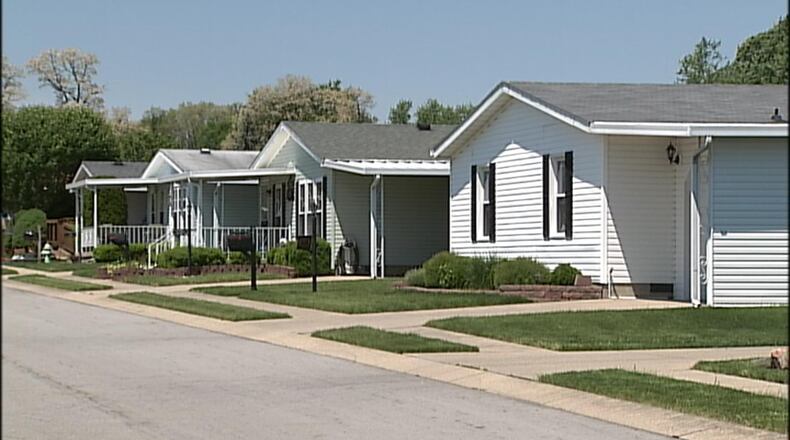Some firefighting and public health groups backed the initiative raising concerns about fire fatality rate of mobile homes and water system problems at mobile home parks, and the law requiring commission members to be vetted by an industry trade group.
RELATED: Deadly home fires spark fight over regulations
The Ohio House of Representatives restored the commission in its budget, but slashed its appropriation in half to about $450,000. That proposal was discussed Thursday before a Senate subcommittee.
Manufactured Homes Commission Executive Director Janet Williams said she can cut her staff down to four people and will still meet her agency’s mandate with the reduced budget.
“Ohio is one, if not the only manufactured home regulatory entity nationally that is not buried in some state bureaucracy, has a lean staff while conducting 100 percent of all new and used home installation inspections,” her written testimony said.
RELATED: Mobile home group takes on Kasich plan, safety claims
Pamela Danner, an administrator with the U.S. Department of Housing and Urban Development’s manufactured homes program also provided testimony on behalf of the commission, saying it “has been an excellent partner in protecting your citizens and ensuring safe, affordable manufactured homes.”
Frank Pojman, president of the Association of Manufactured Home Residents in Ohio, said statements painting Ohio’s manufactured homes as dangerous and unhealthy are “demeaning and disrespectful to the 900,000 Ohioans living in manufactured homes.”
“This implies our homes are unsafe and our residents live in an unclean manner,” he said. “My phone is ringing non-stop as these careless and factually incorrect statements are scaring our residents.”
The manufactured homes commission licenses inspectors who oversee the installation of about 3,000 homes a year. They also license mobile home dealers and license and respond to complaints about more than 1,600 mobile home parks.
‘Risks to their lives and health’
A letter to House lawmakers from the Ohio Association of Community Action Agencies and the Ohio Fire Chiefs Association outlined the arguments for dissolving the commission.
They claim the death rate in mobile home fires is four times that of a traditional home, and Ohio’s mobile home death rate is the worst of all neighboring states. They also claim the commission ignores requests for help in enforcing water quality standards in mobile home parks.
They say the 8 percent of Ohioans who live in mobile homes “all face risks to their lives and health that residents of conventionally-constructed homes do not face.”
RELATED: EPA faults state agency for response to mobile home park water woes
Tim Williams, executive Director of the Ohio Manufactured Homes Association, said these claims about fire safety don’t differentiate between homes built before or after federal standards or the establishment of the commission.
“Manufactured homes today have a stricter fire code, which is a federal fire code, than traditional homes,” he said.
And he said the commission has no authority to enforce drinking water laws; that’s the jurisdiction of the Ohio Environmental Protection Agency.
“(This) has to do with power and control, they (the administration) are trying to take control of the commission,” Williams said. “They want to dictate to the commission who they hire, what they do and how they operate.”
But the House changes currently before the Senate don’t address another criticism of the commission: state law that requires the General Assembly to chose six of the nine commission members from a list provided by the Ohio Manufactured Homes Association.
About the Author

